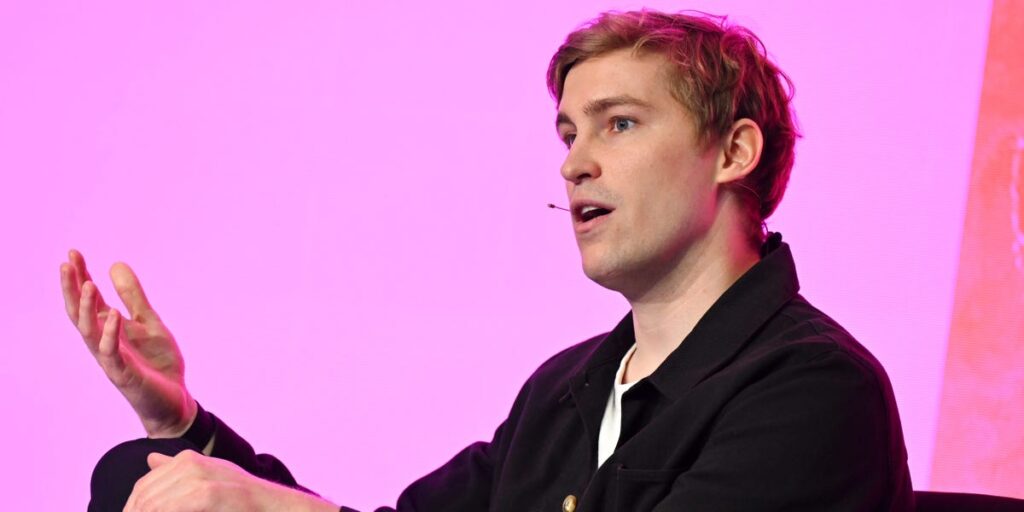ElevenLabs may have a few hundred employees, but its CEO said the voice-cloning AI startup isn’t scaling like a typical tech firm.
Instead of sprawling departments, ElevenLabs’ employees are split into about 20 micro-teams of five to 10 people each, CEO and cofounder Mati Staniszewski said on an episode of the “Twenty Minute VC” podcast published Monday.
Each team owns a product area — from the studio interface to enterprise voice agents — and is designed to move fast without layers of bureaucracy, he added.
“More people frequently doesn’t fix the problem,” Staniszewski said. “You don’t need that many people to do something special.”
ElevenLabs said in a blog post on Monday that it has 330 employees and surpassed $200 million in revenue, with expectations to top $300 million by year’s end. The company had been pacing to reach $100 million in annual revenue by the end of 2024, Business Insider reported last year.
Staniszewski also said ElevenLabs has managed to outperform larger rivals like OpenAI in voice-AI benchmarks and win multimillion-dollar enterprise contracts, thanks to its “mighty” team.
“We now have a very small and mighty team that can learn from each other and move pretty quickly,” he said. “I don’t think there’s a guarantee you get that in some of the other companies.”
Staniszewski said the company plans to expand head count to around 400 this year while sticking with its micro-team model. Even with hundreds of employees, he and his cofounder still interview every candidate themselves.
“It’s a good signal of who we bring into the company,” Staniszewski said, adding that he wants to keep interviewing every hire for as long as he can.
ElevenLabs lists dozens of open roles on its website, from research engineers and data scientists to sales executives and customer success managers worldwide.
It also announced on Monday a $100 million tender offer that will allow employees to cash out some of their shares. The deal, led by Sequoia and Iconiq, values the startup at $6.6 billion — double its Series C valuation from nine months ago.
Staniszewski and ElevanLabs did not respond to a request for comment from Business Insider.
The gospel of small teams
Startups and even Big Tech have been touting the gospel of lean, fast-moving teams.
Mark Zuckerberg said on Meta’s latest earnings call that he has “gotten a little bit more convinced around the ability for small, talent-dense teams to be the optimal configuration for driving frontier research.”
“It’s a bit of a different setup,” the Meta CEO said of its new superintelligence AI unit. The team includes a secretive group of hot-shot hires called TBD Lab, meant to develop the most advanced artificial intelligence models, a recent internal memo shows.
The unit represents a fraction of Meta’s total workforce of over 70,000 employees. Many of its members, including its leader, Alexandr Wang, were hired away from buzzy AI startups.
Startups are also embracing the small teams approach.
Kashish Gupta, the cofounder of Hightouch, a San Francisco–based AI marketing startup, said in a Business Insider report last month that the company has raised over $132 million while keeping its head count at about 55 engineers.
The startup, valued earlier this year at $1.2 billion, expects engineers to be self-starters who build products without requiring micromanagement from their bosses. For example, a major new AI agent launch has only four engineers working on it.
“Ultimately, the people prioritizing work are the engineers themselves or the people they work with,” Gupta said.
Read the full article here


